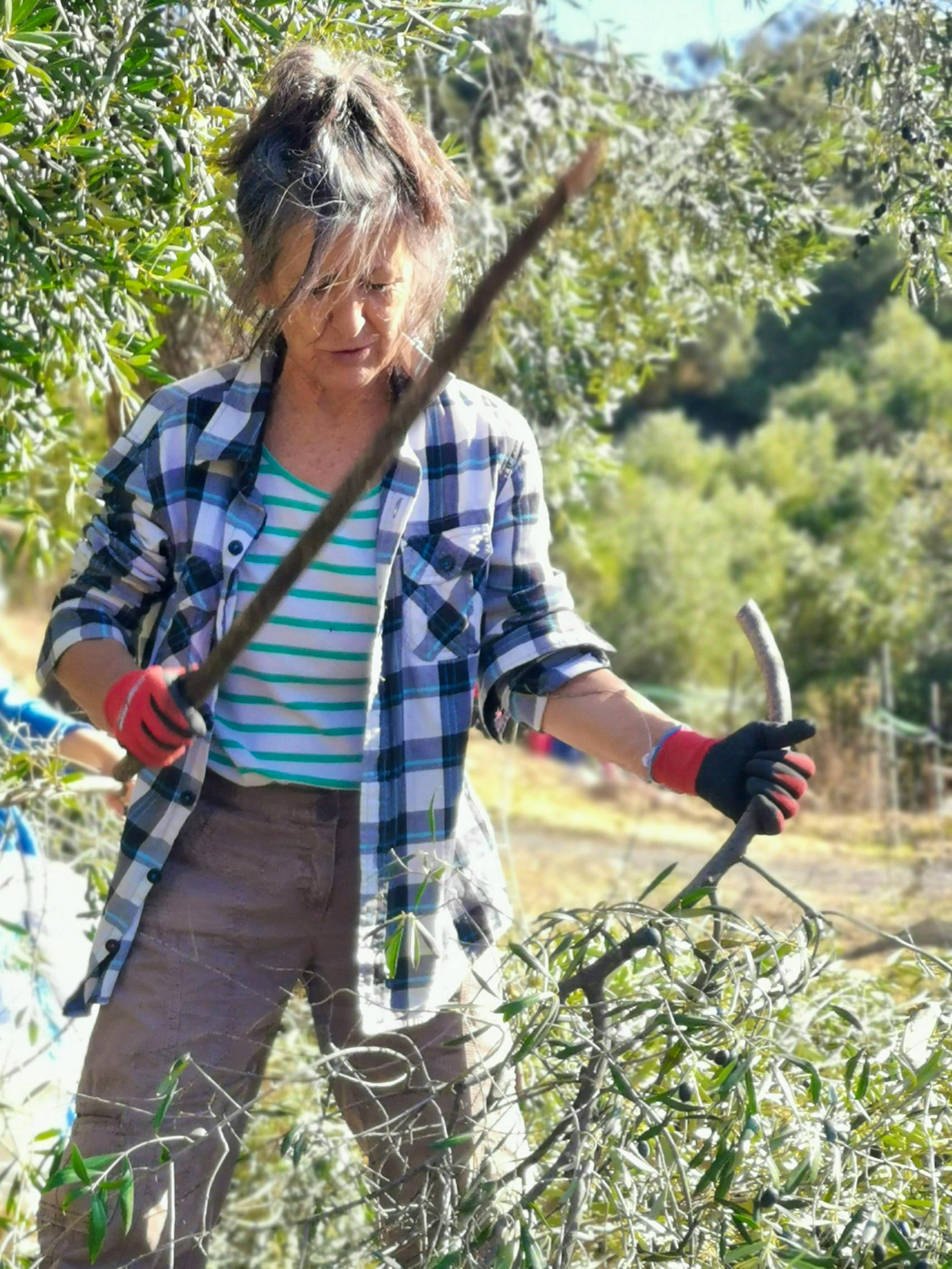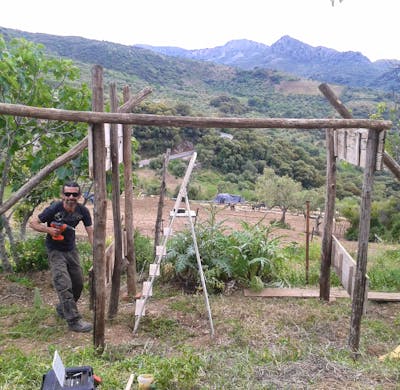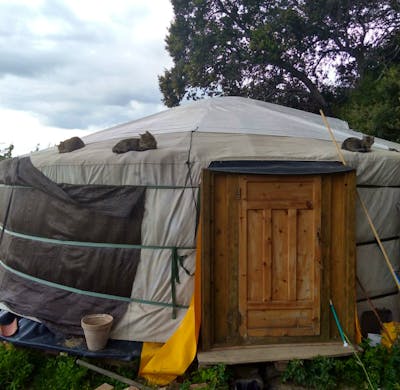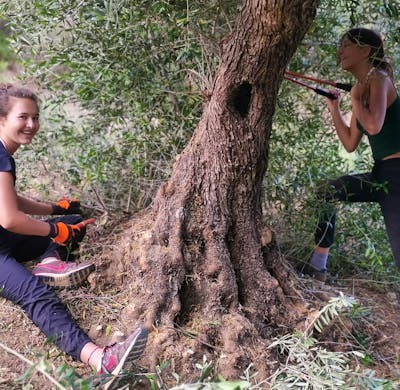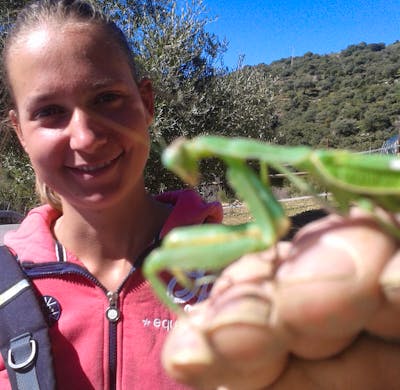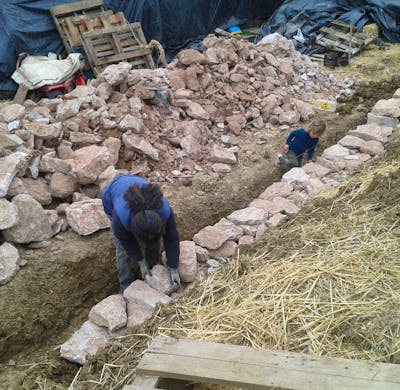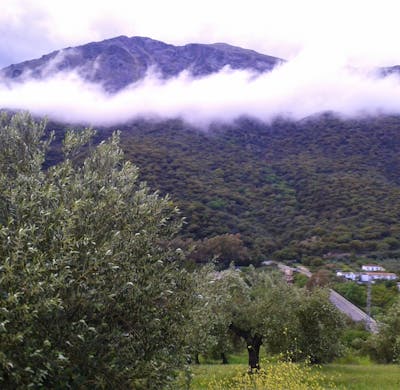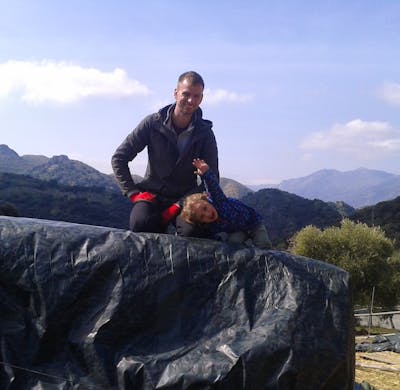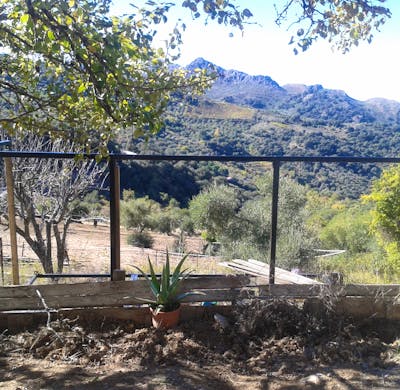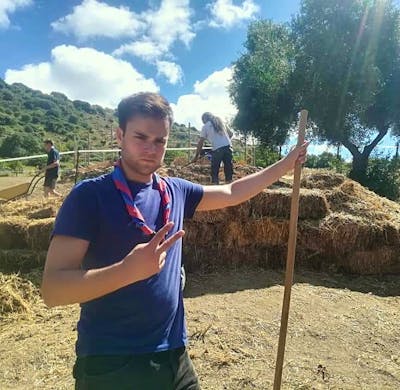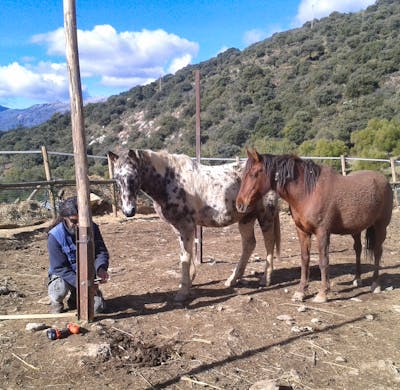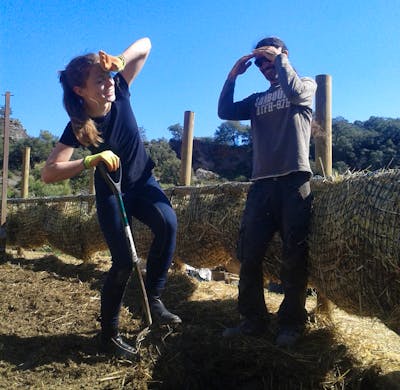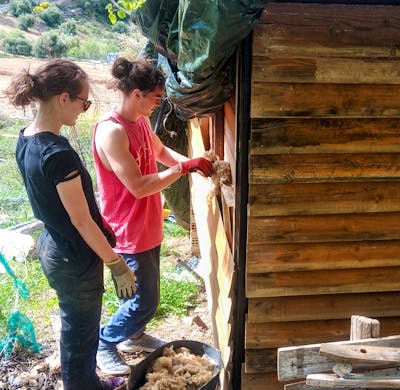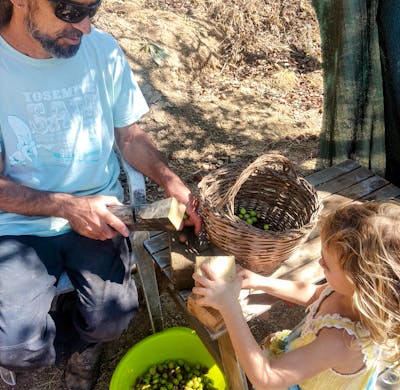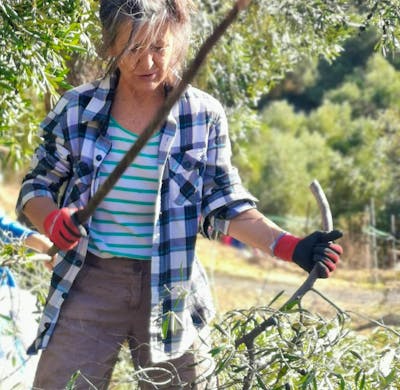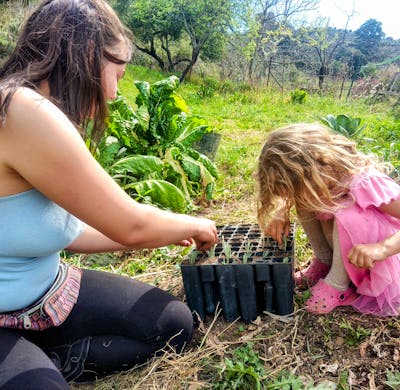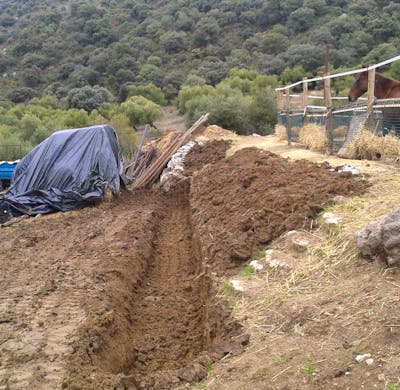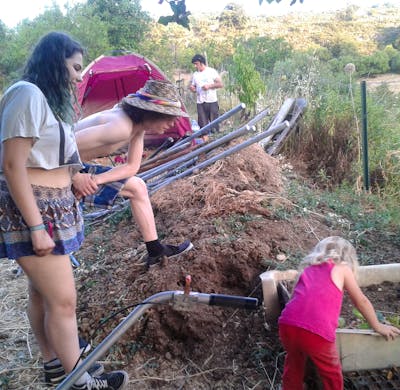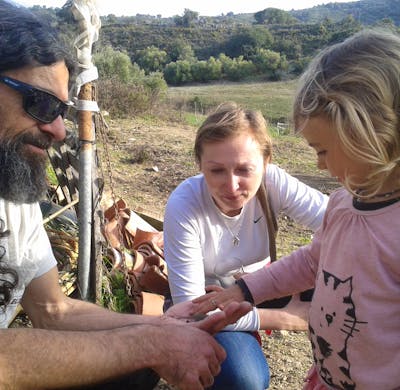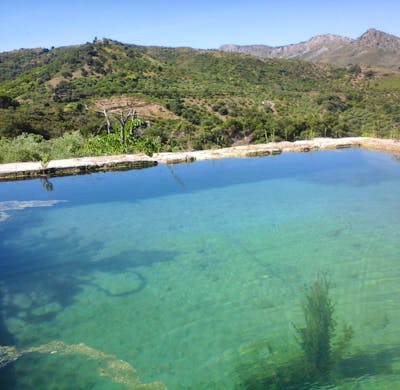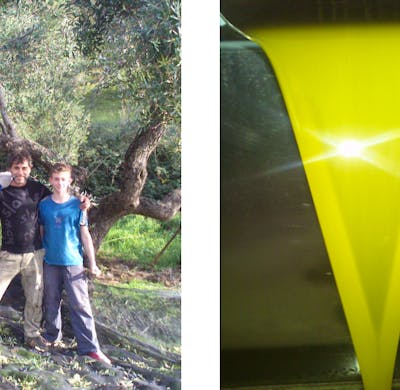About Us and What to Expect
We are a small association aiming for self-sufficiency and working with the land and animals in harmony. We look after a herd of seven horses on site and others off site at various times. We rely on help from nature and animal lovers so that our project can grow.
We live in a village of 150 people in the mountains. It is friendly and intimate. Even if you don’t speak any Spanish, you will be welcomed as if you do.
We are an English-Spanish family, and you are invited to join us and take part a fusion of at least two languages and cultures.
Clare and partner Chico have a wide variety of experience and skills between them. Chico is a native Spanish speaker and runs the gardens and building projects. Clare oversees the horse training sessions, often with the help and support of other volunteers.
Volunteers vary in number, age and background all through the year. Our youngest unaccompanied has been 14 years old and our oldest in their 60’s. Sometimes we just have one, and at other times a group of ten or more! If you are particularly interested in joining us when we have a few others, please check beforehand. If you are more focused on your horsemanship than your socialiation then we have plenty of quiet times too.
Work is often physically hard and although we welcome people from all experiences. A hard-working attitude fits best here. Please let us know before booking if you have specific needs or disabilities so we can discuss the possibilities. You will be joining a family with animals and children. It is essential that you like these as they all join in every area of our lives! Younger volunteers are welcome with parents or guardians.
We are always looking for helping hands whether with general care and maintenance; helping us keep our horses happy; or helping with promotion – there shall be something you can bring your skills to.
Work hours normally are up to 25 hours per week. Check out our Equine Programme if you want to work mostly for and with the horses, or our Sustainable Sanctuary Programme if you are interested in focusing more on building and gardening.
One reason many volunteers decide to take this experience, aside from what they may learn on our actual programmes, is to have the opportunity to experience a different culture and a different way of life to that in which they are used to.
Apart from the fact that each family functions differently from home to home, here we also try to live as sustainable as possible, both as a family and as a project. This is a good opportunity when experiencing the world and new cultures, and we hope you can also embrace this. For example -
In the village:
The accommodation may/may not be basic compared to what some are used to. There are beds, bedding, towels, heating, electric fans, a bathroom with a modern toilet, shower, and bath, running hot and cold water, and a kitchen with a washing machine, stove top and fridge. However, the electric is not very powerful so it may cut out for a few moments if too many appliances are being used at the same time.
No smoking inside the accommodation.
The tap water in the accommodation is drinkable, and there is also the option to bottle your own water from a natural source in the village. We do not provide bottled water. You can buy this yourself in the weekly shop if you still feel it is necessary.
We shop from an extensive, but predetermined list which is provided to the volunteers each week to complete depending on what they need. We do it this way for a number of reasons:
- There is not a shop in the village. So we drive out once a week to shop for everyone. This is a 30 minute car drive each way. You are also able to go into town by bus or taxi on your days off.
- We are on a limited budget. Although you are free to add other items, you must pay for these yourself.
- The availability of items which you may use at home may be limited (therefore expensive) or non-existent here. We try to be as sustainable and as ethical as possible. This means that we buy seasonally available fruit and vegetables. We do not buy items containing palm oil, meat or fish, and we avoid processed food. These things if you feel you need them can usually be eaten in the local bars at your own expense. We won't add meat to the list as an extra, because there are many that come that would not appreciate it being cooked in the shared kitchen, and we like to respect this. But we do have a recipe folder which contains some of our favourite meals which can be made from our usual items if you are in need of inspiration. We provide coffee and teas, but soft drinks and juices are an extra (although we are happy to buy oranges for juicing yourself).
WiFi and phone service:
There is WiFi available in the first accommodation. When this is full we rent other accommodation which is just a minute walk away from the first one in a family friendly bar where there is WiFi inside the bar bit it does not always reach the rooms. There is also a free internet building, but the opening times are sometimes a little sporadic. If you want to use the internet in the accommodation, then we suggest checking with your service provider before you leave. It is also possible to buy a Spanish SIM card if this is a better option for you. You would need to tell us before your arrival, or wait until the weekly shop or your day off to go into town. Vodafone has a very good signal and we use our unlimited mobile data to connect via hotspot to my laptop. I can not vouch for the availability of service/coverage/signal of other companies in the village. The same for making phone calls. Some people are easily able to make calls/Skype calls from the accommodation, and others have to walk out.
Any other details such as pharmacy opening hours, bus times etc can be found in an information folder which we leave available in the accommodation, and encourage you to read before you start on the project.
On the project site:
You must take your own water bottle which can be refilled from the natural source we have there. The main area of work is a little further down the land, so you may have to walk back up to the source to refill (especially in summer). Bear in mind this is not far, but it is a steep hill. You can also refill plastic bottles which we can provide to take down to refill, but someone will need to be responsible to change this each day.
There is no smoking on the project site due to fire risk.
The bathroom on the project site is in nature. This means that you can pee anywhere you like, and there are plenty of hidden spots. We have a compost toilet for solids. This is in the form of a wooden shed with a large wooden box and a toilet seat to sit on. Everything goes into this box then you throw some compostable material on top to cover it which is there beside the toilet. Any tissue and sanitary products go into the bin provided. The box is left aside covered when full, until it is composted. Then it is totally safe to be emptied onto the land (don't worry, we don't ask volunteers to do this!) - which is why you must only use it for solids or it would fill too fast and be impossible to move.
Other details such as start and finish times can be found in an information folder which we leave available in the accommodation, and encourage you to read before you start on the project.
The Sanctuary
The sanctuary is in its infancy having moved to new premises in February 2016. There is a lot of work to do and your help is important to get this exciting project off the ground. Time and Space Equine Education Sanctuary became a registered association in August 2018. We have installed the 'bones' for the horses, and now we need to develop the centre in an agricultural aspect. This will involve building, clearing, planting and harvesting. We have vegetable gardens for our own use, and we are currently working in interesting and stimulating ways to complement human needs with those of the horses. We are working on protecting the land against erosion and creating sustainability in all areas.
Our Aim
- Learn to work with nature to fulfill human and horse needs
- Develop the land to encourage life
- Use innovative designs to meld together beauty, practicality, and sustainability
- Create a space for successful shared use of land
- Promote good and sustainable horse care by creating an enriched environment for our own herd
Other Areas you can get involved in throughout your stay:
Cooking
Clare cooks balanced, healthy vegetarian meals and enjoys sharing ideas and skills with people that we can all enjoy! This is particularly satisfying when it is prepared with homegrown produce. Chico is a wonderful cook with knowledge of many traditional Spanish dishes passed down through generations. We are happy to share this spontaneously, but it is not an integral part of the planned programme.
Language
In the house and while working, we speak a mixture of Spanish and English. We are happy to help and to correct both the written and spoken word. You will get practice in all areas of work and play. Most residents in the village only speak Spanish. You will be welcomed whether you speak Spanish or not, but can practice if you choose to with locals on the streets, other family members, in the bar, catching the bus on on a trip into town...
Horse Care
We are a functioning horse sanctuary and you are welcome to get involved in the daily care of the horses, or just to enjoy being around these wonderful animals.
Force-free training
If you are interested in knowing more about this you could either join our Equine Programme, or we may be able to fit a little something in with the horses if you let us know you would like this and it is possible.
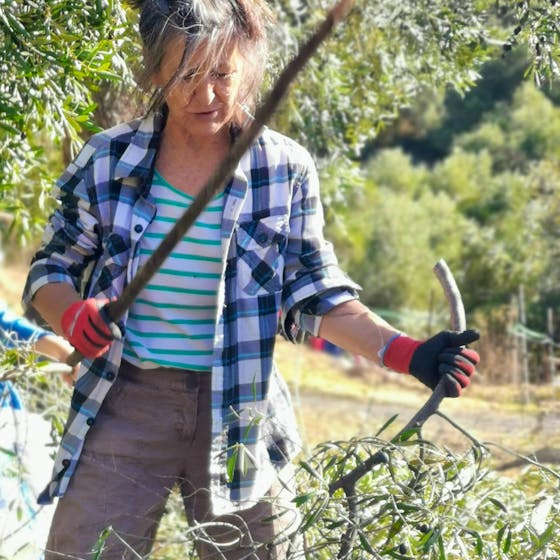
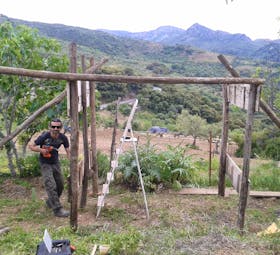
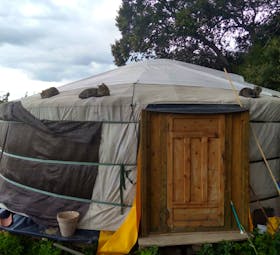
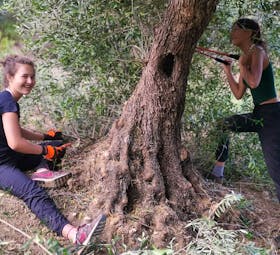
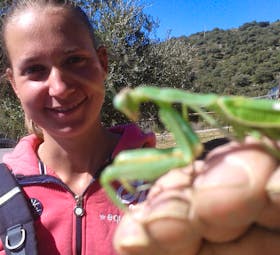
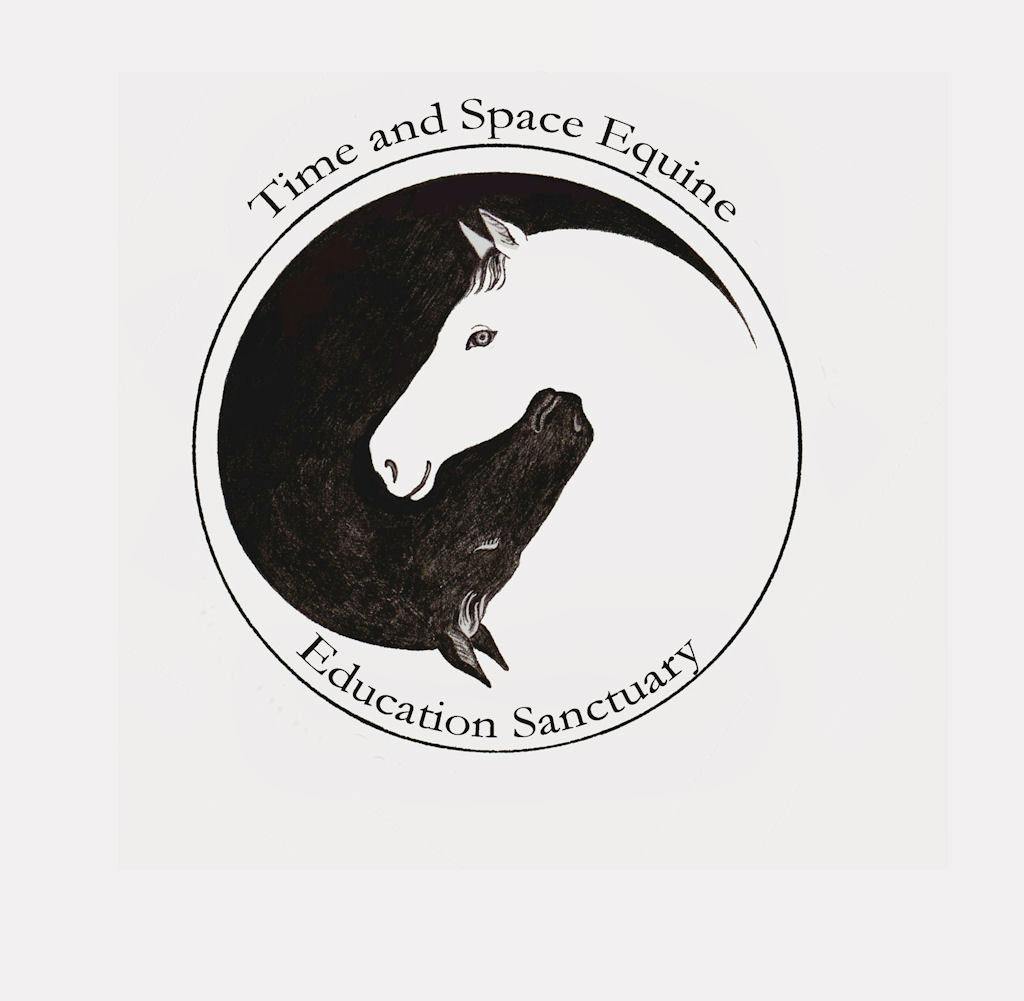
 4.7
4.7

